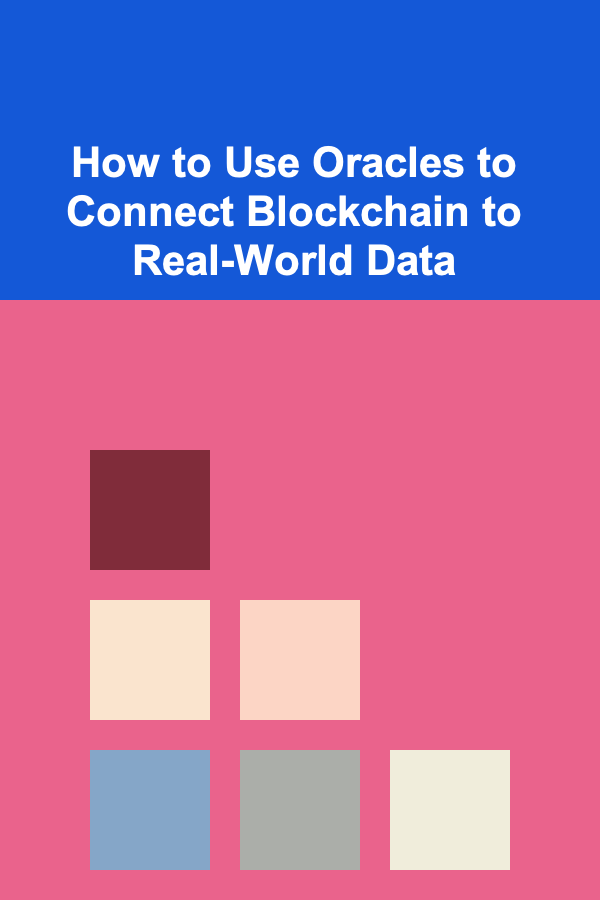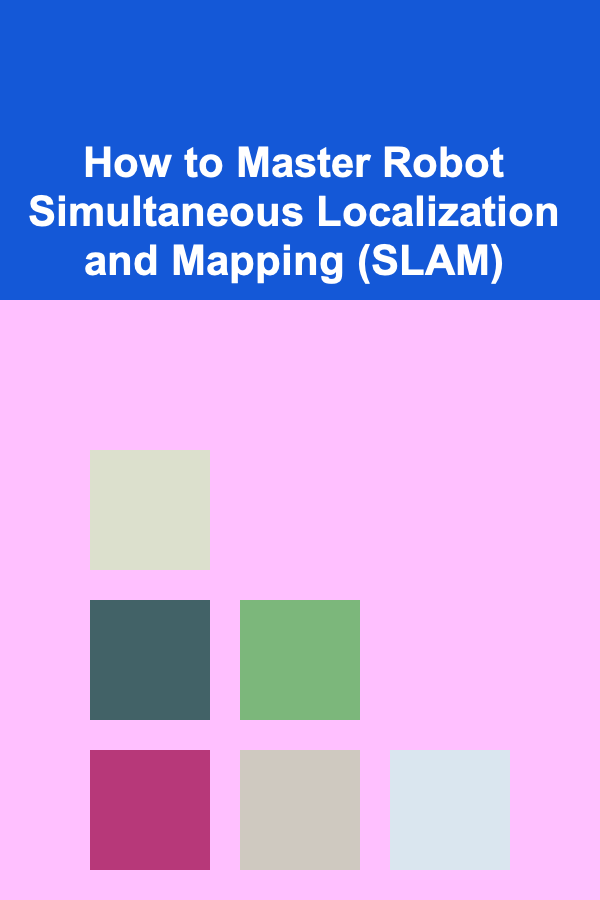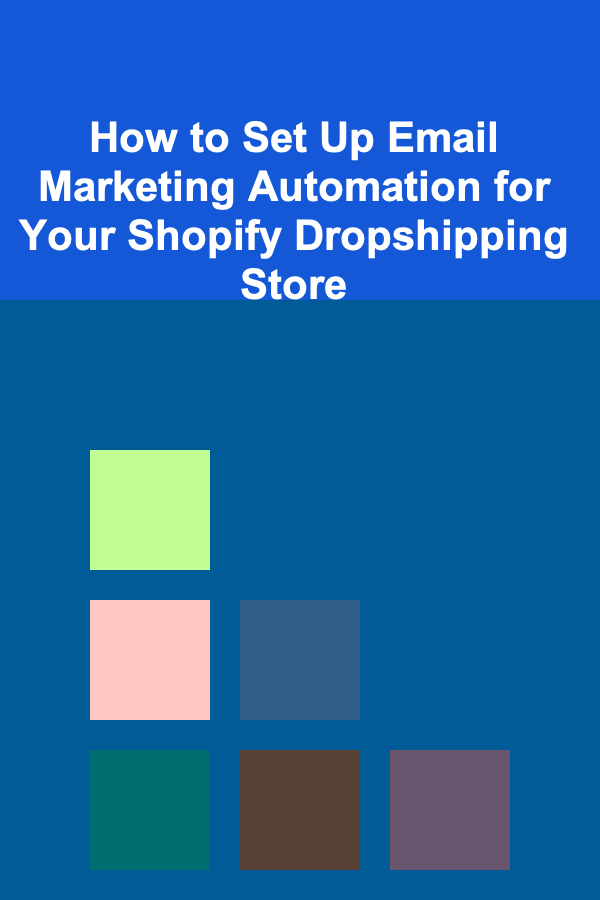
How to Use Oracles to Connect Blockchain to Real-World Data
ebook include PDF & Audio bundle (Micro Guide)
$12.99$6.99
Limited Time Offer! Order within the next:

Blockchain technology is a revolutionary system that enables decentralized and secure transactions over a peer-to-peer network. Its promise lies in immutability, transparency, and efficiency. However, one of the biggest limitations of blockchain technology is its inability to access data from the outside world, commonly referred to as "off-chain data." This is where oracles come in.
In simple terms, oracles are bridges that connect blockchains to the real world. They provide a way for smart contracts to access external data, enabling more complex, real-world applications. This article will delve deep into how oracles function, their importance in connecting blockchain to real-world data, and how they facilitate the execution of smart contracts that can interact with real-world events, such as stock prices, weather conditions, and more.
What is an Oracle?
An oracle is a third-party service or protocol that enables smart contracts to interact with external data sources. In the context of blockchain, a smart contract is a self-executing contract with the terms of the agreement directly written into code. However, blockchains themselves cannot fetch data outside the network---they can only work with data that is stored within the blockchain.
Oracles act as intermediaries by providing external data to the blockchain in a secure and reliable manner. These can include data such as:
- Price feeds: Real-time stock prices or cryptocurrency market data.
- Weather data: Temperature, humidity, and precipitation readings.
- Event outcomes: Sports results, election results, or any other type of real-world event.
Oracles ensure that smart contracts can execute actions based on the real-world data they receive. The concept is similar to a trusted data feed that informs the blockchain about events happening outside its native environment.
Why Oracles Are Important
The importance of oracles in blockchain ecosystems can't be overstated. Without oracles, smart contracts are limited to executing predefined actions based only on the data stored within the blockchain. For instance, a smart contract for a prediction market would only work if the result of the event was already stored in the blockchain. But since most real-world events (like sports scores or commodity prices) happen off-chain, oracles provide the crucial link that allows these events to be captured and acted upon in real time.
Types of Oracles
There are several different types of oracles that cater to specific needs. The most common types include:
1. Software Oracles
Software oracles pull data from online sources such as websites, APIs, and databases. These oracles are often used to fetch real-time information, like financial market data, weather conditions, or sports results.
Example: An oracle fetching real-time cryptocurrency prices from an API (e.g., CoinGecko) to trigger a smart contract when the price reaches a certain threshold.
2. Hardware Oracles
Hardware oracles are used to connect physical devices to the blockchain. These oracles can gather information from sensors, RFID tags, GPS systems, and other physical devices to provide data on temperature, location, or physical conditions.
Example: A smart contract for an insurance company that uses a temperature sensor to detect weather conditions (e.g., a temperature drop indicating a hailstorm) to automatically trigger an insurance claim.
3. Consensus-Based Oracles
These oracles gather data from multiple sources and use a consensus mechanism to validate and aggregate the data before delivering it to the blockchain. This can improve the reliability and accuracy of the data provided to the smart contract.
Example: A decentralized oracle network like Chainlink pulls data from several financial institutions, ensuring that the price data for a commodity is accurate and not manipulated.
4. Chainlink Oracles
Chainlink is one of the most well-known decentralized oracle networks, offering a decentralized approach to obtaining data. It connects blockchains to real-world data sources using a network of independent nodes that retrieve, verify, and deliver data.
Chainlink has become a leading oracle provider for Ethereum and other blockchain ecosystems, enabling developers to build smart contracts that require off-chain data without relying on a single centralized source of truth.
How Oracles Work
The process of how oracles interact with blockchain networks involves several steps. The following flowchart explains a typical process:
- Smart Contract Requests Data: A smart contract is deployed with the condition to fetch external data. For example, if a blockchain-based insurance contract is triggered by a weather event, it will request weather data from an oracle.
- Oracle Fetches Data: The oracle gathers the requested data from an external source---such as an API, sensor, or another blockchain.
- Oracle Validates Data: In some cases, oracles will aggregate data from multiple sources or validate the data through consensus mechanisms. This ensures that the information is accurate and not tampered with.
- Oracle Delivers Data: Once the oracle retrieves and validates the data, it sends the data to the blockchain.
- Smart Contract Executes: The smart contract executes the pre-defined action based on the external data it receives, such as triggering a payment, issuing a token, or modifying a ledger.
Challenges and Risks of Using Oracles
While oracles are essential for blockchain's interaction with the real world, they do come with certain risks and challenges. Some of the most significant challenges include:
1. Trust Issues
Since oracles are typically third-party providers, there is a risk of trusting a single, centralized entity that could manipulate the data being sent to the blockchain. This issue is particularly prominent with centralized oracles.
Solution: Decentralized oracles like Chainlink mitigate this issue by using multiple independent nodes to verify and aggregate data, reducing the risk of a single point of failure.
2. Data Integrity
Oracles must ensure that the data they provide is accurate and tamper-proof. If an oracle delivers incorrect data to a smart contract, the consequences could be severe, especially in industries like finance or insurance.
Solution: Oracles can use cryptographic proofs to ensure data integrity. Some decentralized oracle networks also use reputation systems to ensure that nodes providing inaccurate data are penalized.
3. Latency
The time it takes for oracles to fetch, validate, and send data to the blockchain can create latency issues. In some cases, especially when real-time data is needed, this delay may impact the functionality of the smart contract.
Solution: Some oracles are designed to offer near-instantaneous data feeds, especially in high-frequency trading or gaming applications. Developers may also incorporate fallback mechanisms to handle data delays.
4. Security Risks
Oracles themselves can become a target for hackers. If an oracle's infrastructure is compromised, attackers can manipulate the data sent to the blockchain.
Solution: Security measures, such as encryption, multi-signature authorization, and decentralized oracle networks, can help mitigate security risks and prevent tampering.
Use Cases of Oracles in Blockchain
Oracles have found practical applications across various industries, and their impact continues to grow as blockchain technology expands. Some of the most common use cases include:
1. Decentralized Finance (DeFi)
In DeFi, oracles are used to provide real-time financial data such as exchange rates, collateral values, and interest rates. Without oracles, decentralized exchanges (DEXs) or lending protocols would be unable to execute trades or loans based on real-world prices.
Example: A lending protocol may use an oracle to fetch real-time cryptocurrency prices to ensure that the value of a borrower's collateral is properly maintained. If the value falls below a certain threshold, the loan can be liquidated automatically.
2. Insurance
Blockchain-based insurance platforms can use oracles to automatically trigger payouts when specific conditions are met, such as bad weather, natural disasters, or flight delays.
Example: A travel insurance smart contract could use an oracle to track flight statuses. If a flight is delayed by a certain amount of time, the oracle sends data to the blockchain, triggering an automatic claim payout.
3. Supply Chain
Supply chains can leverage oracles to track products, shipments, and conditions along the entire journey. Oracles can provide data from GPS devices, temperature sensors, and RFID tags to ensure transparency and traceability.
Example: A smart contract in a supply chain system can track the temperature of perishable goods in transit. If the temperature exceeds a certain threshold, the oracle alerts the contract to take action, such as notifying the supplier or canceling the delivery.
4. Gaming
In gaming, oracles can be used to integrate real-world data into games, allowing smart contracts to trigger in-game events based on real-world events like sports results or weather conditions.
Example: In a blockchain-based fantasy sports game, oracles can provide real-time player statistics and game outcomes, enabling smart contracts to determine the outcome of bets and distribute rewards.
Conclusion
Oracles are a crucial component in bridging the gap between the blockchain and the real world. They enable smart contracts to access off-chain data, thus enhancing the functionality of decentralized applications (dApps) in various industries, from finance to insurance and gaming. As blockchain technology continues to evolve, oracles will play a pivotal role in the broader adoption and usability of decentralized systems. However, the challenges related to trust, data integrity, latency, and security need to be carefully addressed to ensure that oracles can be relied upon to provide accurate and secure data to blockchain networks.
As blockchain adoption grows, the use of oracles will continue to be a key factor in unlocking the full potential of decentralized ecosystems and enabling smarter, real-world applications.
Reading More From Our Other Websites
- [Home Family Activity 101] How to Make Homemade Family Holiday Cards and Gifts Together
- [Star Gazing Tip 101] Beyond the Night Sky: Crafting a Fresh Stargazing Adventure for First-Timers
- [Home Rental Property 101] How to Invest in Multiple Rental Properties for Increased Income
- [Organization Tip 101] How to Set Realistic Meal Prep Goals for Yourself
- [Home Budget 101] How to Teach Your Kids About Budgeting and Saving at Home
- [Home Party Planning 101] How to Decorate Your Home for a Romantic Date Night Party
- [Rock Climbing Tip 101] From Crack to Crux: Techniques to Conquer the Hardest Trad Moves
- [Small Business 101] How to Navigate Trademark Registration for Small Custom Apparel Brands
- [Home Soundproofing 101] How to Soundproof a Home for Ultimate Privacy
- [Personal Care Tips 101] How to Apply Blush for Mature Skin: Tips for a Natural Look

How to Clean and Maintain Your Floors: A Simple Checklist
Read More
How to Find the Best Dave Ramsey Financial Advisor for Debt Management
Read More
How to Master Robot Simultaneous Localization and Mapping (SLAM)
Read More
How to Plan a Cozy Dinner Party for Close Friends
Read More
How to Set Up Email Marketing Automation for Your Shopify Dropshipping Store
Read More
10 Tips for Fieldwork Success as a Marine Biologist
Read MoreOther Products

How to Clean and Maintain Your Floors: A Simple Checklist
Read More
How to Find the Best Dave Ramsey Financial Advisor for Debt Management
Read More
How to Master Robot Simultaneous Localization and Mapping (SLAM)
Read More
How to Plan a Cozy Dinner Party for Close Friends
Read More
How to Set Up Email Marketing Automation for Your Shopify Dropshipping Store
Read More